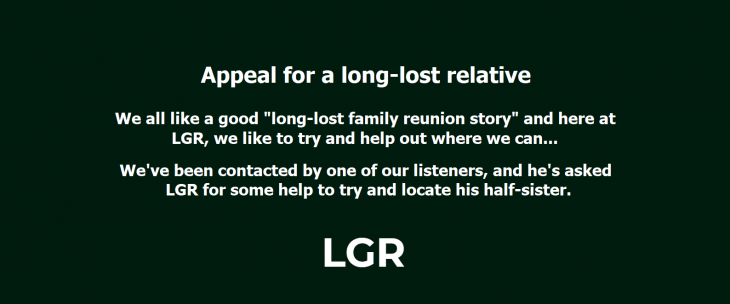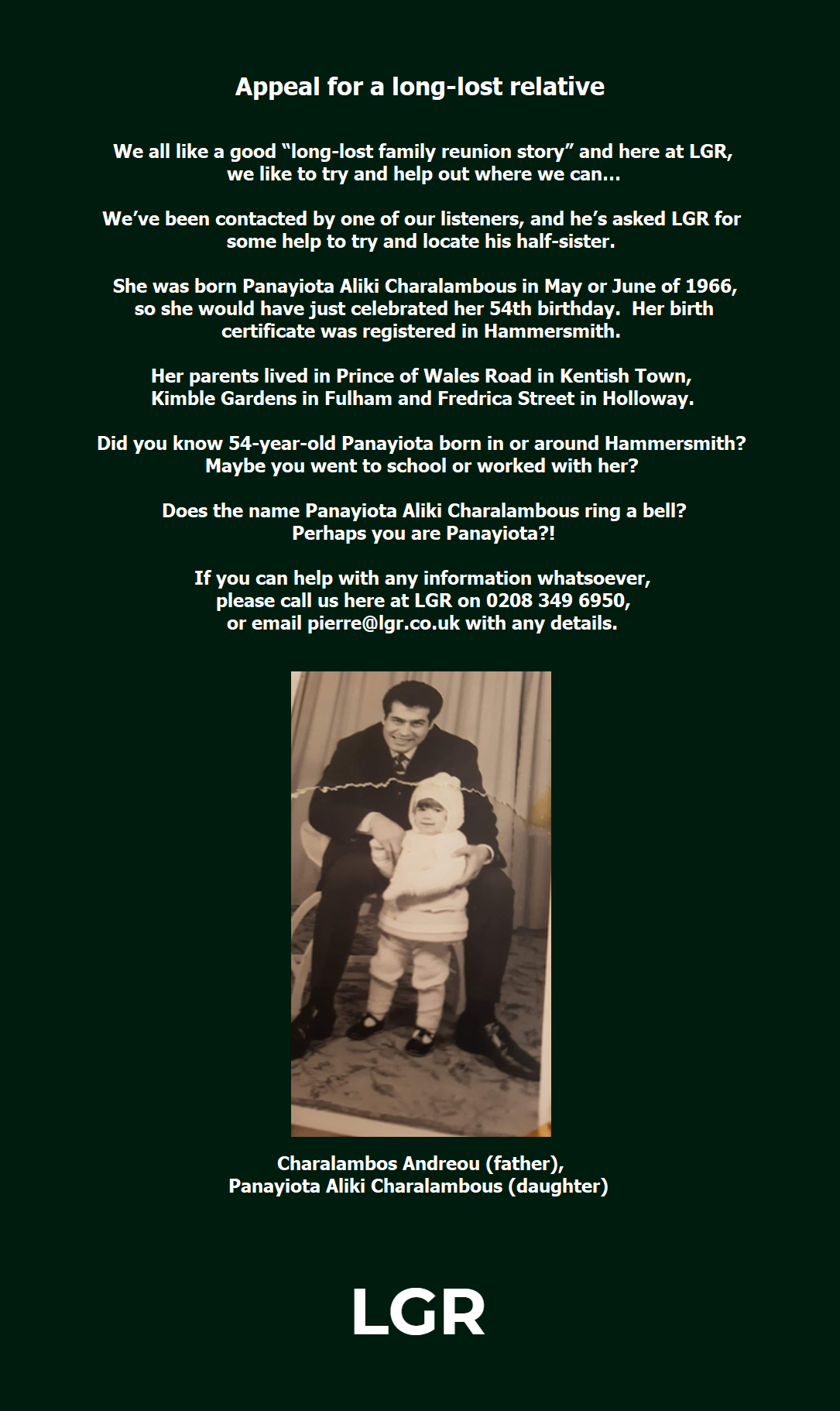COMMUNITY
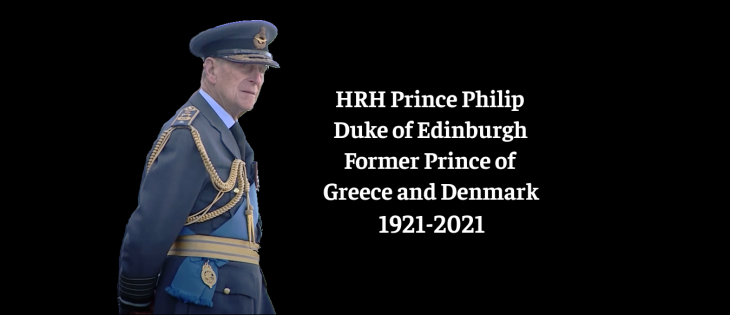
Along with the Royal Family and the world, everyone at London Greek Radio, (LGR), mourns the loss of His Royal Highness, The Prince Philip, Duke of Edinburgh, former Prince of Greece & Denmark.
Prince Philip – the Duke of Edinburgh – died at the age of 99 on 9th April 2021.
A statement from Buckingham Palace said: “It is with deep sorrow that Her Majesty The Queen has announced the death of her beloved husband, His Royal Highness The Prince Philip, Duke of Edinburgh.
“His Royal Highness passed away peacefully this morning at Windsor Castle.”
Tributes have been pouring in from around the world.
The President of Cyprus, Nicos Anastasiades, said via Twitter, “It is with great sadness that I received the news of the passing of His Royal Highness The Prince Philip, Duke of Edinburgh, a close friend of Cyprus. My deepest condolences and heartfelt sympathy to Her Majesty The Queen, the @RoyalFamily and the people of the UK for their loss.”
Greece’s President, Katerina Sakellaropoulou, tweeted, “The Duke of Edinburgh, Prince Philip, who was born in Corfu, served his country with devotion for many decades. I extend my warm condolences to Her Majesty Queen Elizabeth II, the members of the @RoyalFamily and the British people.”
Archbishop Nikitas of the Greek Orthodox Archdiocese of Thyateira and Great Britain also expressed their condolences, sorrow and mourning to Her Majesty and the United Kingdom. The Archdiocese has directed its Christ-loving clergy and laity to pray for the repose of the soul of Prince Philip and His Eminence has announced a three-day state of official mourning in parishes of the Archdiocese, as a sign of respect.
Prince Philip of Greece was born on 10th June 1921 on the Greek island of Corfu. His birth certificate shows the date as 28th May 1921, as Greece had not then adopted the Gregorian calendar.
His father was Prince Andrew of Greece, a younger son of King George I of the Hellenes. His mother, Princess Alice of Battenberg, was the eldest child of Prince Louis of Battenberg and sister of Earl Mountbatten of Burma.
Even though Philip was born into the Greek aristocracy, (he was the grandson of the country’s King George I), his childhood was a far cry from the opulence of the usual royal upbringing.
The king himself was shot dead in 1913 by a crazed anarchist with a loathing for the establishment. A proper political motive for the killing was ruled out at the time, with the assassin dismissed as just an intoxicated vagrant. Philip’s uncle took the crown as Constantine I, but his rule was to prove shockingly turbulent.
In 1922, Constantine I was forced from the throne by a military uprising, and the entire royal family came under threat. They were forced into exile on a British boat, with the infant Philip transported in an orange box. They went to France, beginning a life of travelling and uncertainty for the boy.
Prince Philip married Princess Elizabeth in 1947 in front of 2,000 guests at Westminster Abbey.
In 2017, Prince Philip and the Queen became the first British monarch and consort to reach their 70th wedding anniversary.
Together they had four children, eight grandchildren and ten great grandchildren.
LGR understands that Prince Philip will lie at rest in Windsor Castle in line with his wishes following his funeral, which will be at St George’s Chapel at Windsor Castle.
Following a number of health scares in recent years, it is thought Prince Philip has had a lot of say in his funeral.
According to reports, Prince Philip wished for only family, friends and heads of state from Commonwealth countries to attend the funeral.
The College of Arms has confirmed that the Duke of Edinburgh’s funeral will not be a state funeral and the public has been asked not to attempt to attend any of the funeral events due to the pandemic.
London Greek Radio (LGR) is deeply saddened on learning of this news and we join the Royal Family in mourning the loss of HRH, Prince Philip, the Duke of Edinburgh.
1921 – 2021. May he rest in peace.
Article written by London Greek Radio
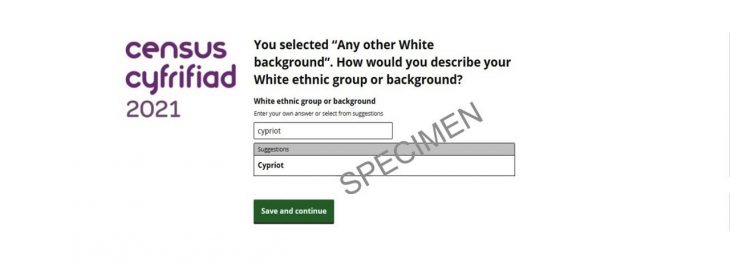
The National Federation of Cypriots in the UK encourages British Cypriots to classify ethnically as “Cypriot” in Census.
The National Federation of Cypriots in the UK has called on Cypriot communities to complete the online survey sent by the Office for National Statistics (ONS) by Sunday 21st March, or shortly after.
Federation President, Christos Karaolis, said “We want to use this opportunity to make sure that our Cypriot diaspora is counted, so that Governments and Councils take us into consideration in their decision-making.”
The Federation is therefore urging UK Cypriots to make sure they write-in “Cypriot” in the question about ethnicity / background. This can be done by selecting “Other ethnic group or background” and then typing in “Cypriot” in the space provided.
It is ONS policy never to share personal details and no-one, including government bodies, will be able to identify you in census statistics. Personal census records will be kept secure for 100 years, and only then can future generations view it.
This census will be the first to be run mostly online, with households receiving a letter with a unique access code in March, allowing them to complete the questionnaire on their computers, phones or tablets.
Paper questionnaires will also be available on request, along with language support via the free phone contact centre. It is also possible to complete the census over the phone with help from trained staff.
The ONS aims to provide in-person support to complete the census online through Census Support Centres where it is safe to do so.
The census will include questions about your sex, age, work, health, education, household size and ethnicity, with options to allow everyone to identify their nationality, ethnic group and religion as they wish.
For more information, please visit census.gov.uk
Article written by London Greek Radio
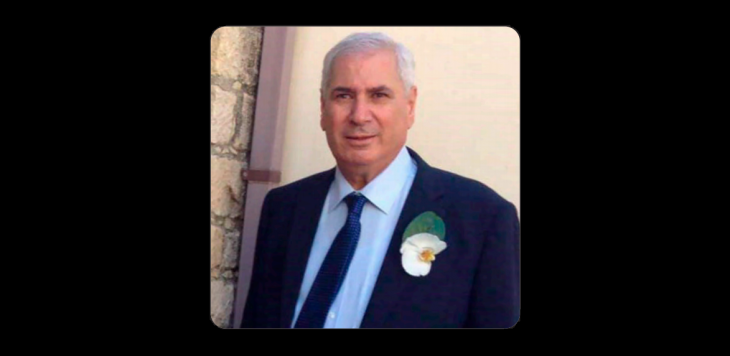
Everyone at LGR was deeply saddened to learn of the passing of Neophytos Nicolaou on Sunday 21st February 2021. He was 74.
Neophytos was battling with Coronavirus at the University College Hospital in London after being transferred from the North London Middlesex Hospital. He had been initially admitted on 9th January and transferred to the UCH on 16th January.
We understand that Neophytos’ wife Evoulla also contracted Covid-19 and was also taken to North Middlesex Hospital. She has since recovered and has returned home.
Neophytos Nicolaou was the former General Manager of the newspaper Parikiaki and one of the main organisers of the annual Cypriot Wine Festival.
He leaves behind his wife Evoulla, daughter Egli and son Alex. His daughter Maria died five years ago at the age of 46.
He also leaves six grandchildren: Jimmy, Stephanie, Leo, Zoe, Evie and Chris, and three sisters: Maro, Savoulla and Lalla who live in Cyprus.
Neophytos was born in Erimi, Cyprus on 11th December 1946 to Nikola and Egli and was part of a family of nine. His siblings were three brothers, Alexandros, Antonaki and Koko, and three sisters, Maroulla, Savoulla and Lalla.
He attended Lanition Gymnasium in Limassol and came to the UK in May 1963 at the age of 16. He first lived in Kentish Town and studied at Pitmans College.
His wife, Evoulla was from Limassol and they got married on 17th August 1969, living in Palmers Green.
He worked in the rag trade for several years and later became General Manager of Parikiaki. In addition, Neophytos was the Organising Secretary for AKEL in Britain and was General Secretary and a member of the Executive Committee of the National Federation of Cypriots in the UK.
In his later years, Neophytos was instrumental in raising thousands of pounds for charity, notably Radiomarathon, where he was made a Trustee. He last visited LGR just weeks beforehand, over the Christmas period and briefly spoke with management.
The funeral will take place on 25 March 2021 at St Mary’s Cathedral, (Panayia), Wood Green at 1pm, followed by the burial at Edmonton Cemetery, Church Street at 3pm. Due to current pandemic restrictions, the attendance at the church will be by invitations only.
In lieu of flowers, the family kindly asks for donations that will go to organisations / charities that were close to Neophytos heart.
Everyone at LGR extend their condolences to the family and we thank him for his services to our community and to Radiomarathon.
Article written by London Greek Radio
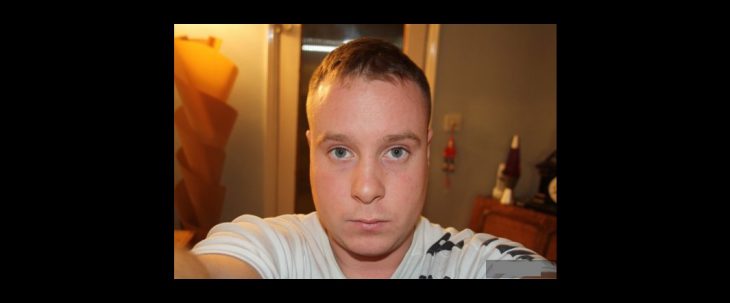
WE are to sad to announce that Ashley Paxos Robinson died earlier this month on 9th February 2021. He always loved being associated with LGR and supporting it through his Greek White Teeth, and sponsoring social events. As many of you will know he was involved in the community, especially encouraging young talent wherever he could, including visiting local schools. He loved the community and talked about the community all the time. We are sure he will be missed by many. Please remember Ashley Paxos in your prayers.
His funeral will be held on Friday 5th March at 10.00 am, at Breakspear Crematorium, Ruislip. Unfortunately, because of government restrictions only family will be able to attend. But there will be a webcast. You visit the funeral website, enter a user name and a password.
The website is: obitus.com/
User name: Yogo1947
Password: 467205
You can join us live or after three days it will be available to watch for the next 28 days.
Article written by London Greek Radio
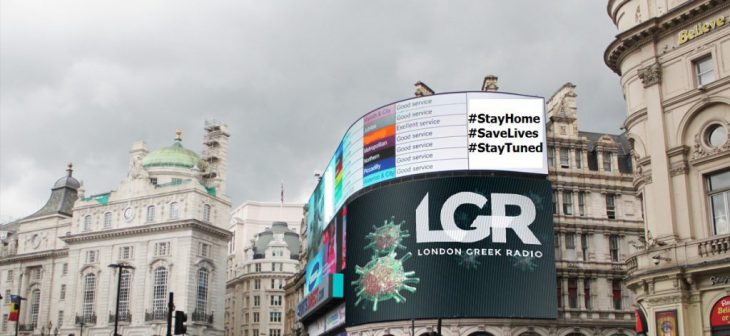
It’s been reported this week that 630 British Cypriots have died in relation to Coronavirus.
The weekly Parikiaki newspaper which has continued to print it’s circulation during the pandemic have been providing regular updates. The latest figures were published as of 11th February 2021, however it is not known whether the deceased have died directly from Coronavirus or whether they had tested positive for the virus, but died of other causes.
The newspaper has contacted hospitals, churches, funeral directors, Turkish Cypriot media and community, plus requests for their weekly death announcements, and confirmed 630 British Cypriots have died, with 9 deaths of UK Cypriots in the past week.
Reportedly, in London alone, at least 9 Cypriot families have lost loved ones to the disease, of which 5 were Greek-Cypriots and 4 Turkish-Cypriots.
This is the lowest recorded weekly figure recorded since almost two months by the London news outlet.
According to Parikiaki’s calculations the deceased are as follows:-
British Greek Cypriots – 311
British Turkish Cypriots – 270
British Maronite Cypriot – 1
[Which includes 12 cases of married couples, 2 cases of two brothers and 2 cases of fathers and sons and 1 of mother and daughter and 4 under 40 year olds.]
All of the above are from the London area with 12 additional Greek-Cypriot deaths and 1 Turkish-Cypriot in Birmingham, 1 in Cambridge, 1 in Cardiff, 2 in Cheltenham, 1 in Colchester, 2 in Coventry, 1 in Derby, 1 in Hemel Hempstead, 1 in Glasgow, 2 in Leeds, 1 in Leicester, 6 Greek-Cypriots and 1 Maronite-Cypriot in Liverpool, 1 in Lowestoft, 1 in Luton, 1 in Maidstone, 1 in Manchester, 1 in Mansfield, 1 in Margate, 1 in Middlesbrough, 1 in Newport, 1 in Northampton, 1 in Suffolk, 1 in Southend, 1 in Wakefield, 3 Greek-Cypriots (from the same family) in Weston-super-Mare.
The figure includes 582 in London and 48 outside London.
With 2,392,293 deaths worldwide, the above total of 630 British Cypriot deaths equates to 0.026% of deaths globally and 0.54% of deaths in the UK.
Cyprus currently has 32,288 cases of positive tests for Coronavirus with 219 deaths and so far, 2,057 have recovered from the disease, (just over 6%).
In Greece, of 170,244 cases, 6,077 people have died and 150,901 have recovered, (just over 88% so far).
Globally, from the 108,702,417 who have tested positive for the disease, 80,699,989 have recovered and 2,392,293 have died. [Just over 74% recovery rate so far and 2.2% spot-on who have died worldwide.]
The 108,702,2992, confirmed worldwide cases represents 1.38% of the world’s population who have been diagnosed with Coronavirus.
London Greek Radio (LGR) expresses our sincere condolences to the families and friends of all those who have sadly died during the pandemic and continuing to work with various organisations to help and support our communities at this challenging time.
John Kyriakides, Chairman of LGR said, “The LGR family are working hard to keep listeners informed, entertained and updated during this unprecedented time. I am saddened to hear of so many deaths in our communities.”
Tony Jay, Managing Director for LGR added, “LGR will continue to promote cross-partnership initiatives to help our listeners and communities. Our work to communicate the help that is available is more important than ever because we all have a role to play in fighting this virus.”
Information credited and attributed to Parikiaki newspaper and worldometers.info
Figures correct at time of publication 00:30 on Saturday 13th February 2121.
Article written by London Greek Radio
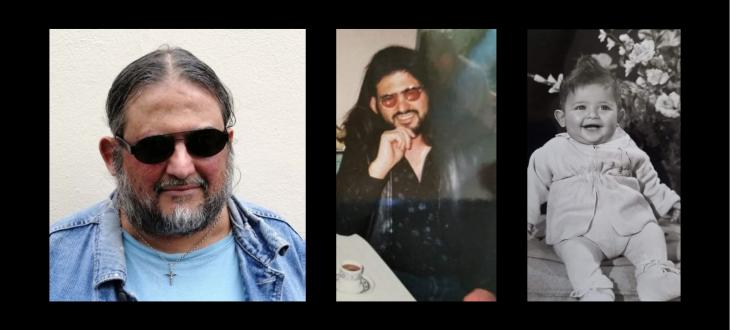
LGR were shocked and saddened to learn of the sudden passing of Kyriacos ‘Koulis’ Kyriacou on 20th January 2021.
Kyriacos, (Koullis) was an avid LGR fan and critique and had a rapport with management and presenters on a regular basis.
He was found dead at his home in Seven Sisters Road, Stoke Newington after a friend attended, concerned that Koullis was not answering any phone calls.
London Ambulance Service and police were called just after 8.00pm on the evening of Wednesday 20th January and had to force entry to the property.
Koullis, originally from Limassol in Cyprus, was found deceased in his bed. It is believed that he last spoke with friends on the day before, and last called LGR on the evening of Monday 18th January.
LGR understands that an initial post-mortem has proved inconclusive and further tests are being carried out, including toxicology. It’s not believed that there are any suspicious circumstances, however, the death has been referred to the North London Coroner.
Koullis, known in England as ‘Kyri’ was 57 years old.
He was born in Limassol on 17th June 1963 to Christakis (Christos) and Eleni, and has two younger brothers, 56-year-old Anastasios, (Tassos) and Panikos, who is 50 years old.
Koullis’ brothers still live in Cyprus. Their mother passed away at the age of 65.
Young Kyriacos had eye problems as a child and came to England in 1997 to have surgery in the hope that his eyesight would improve.
He eventually settled down in Seven Sisters Road and dealt with top quality sound and HiFi equipment. Kyriacos was a humble and religious man who always tried to help others. His faith was strong and he had personally studied music and Hippocratic medicine.
Although a very private man, to those who knew him, he was a very good friend who could be trusted and relied upon.
As an avid listener of LGR, Koullis enjoyed the weekly Holy Liturgy on Sunday mornings and his passion for music meant that he would frequently contact LGR’s presenters with help and advice. As well as enjoying Greek favourites such as Spyros Zagoraios, Rita Sakellariou, Stratos Dionysiou, Giorgos Mazonakis, Stelios Kazantzidis, Theodosia Tsatsou, Mihalis Menidiadis, and rock and Entechna Greek songs, he was also very knowledgeable in English music, enjoying songs by Deep Purple, Whitesnake and many more.
Our condolences to Koullis’ friends and family. May he rest in peace and rise in glory.
Article written by London Greek Radio
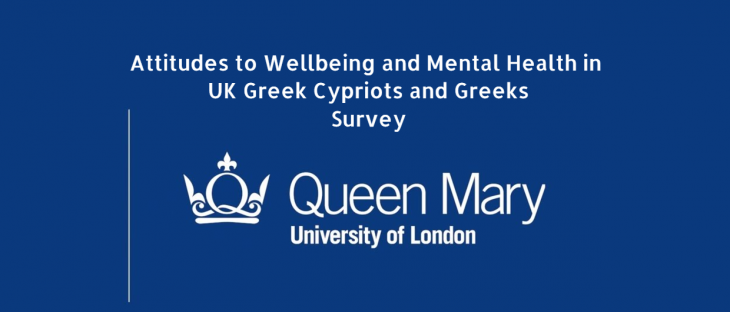
Queen Mary University of London’s medical and psychiatric faculty have called for research into ethnic minorities surrounding Wellbeing and Mental Health, partly to see what can be learnt on the positive side, and partly to identify who, (within communities), needs support. LGR is proud to help support the research by inviting our listeners to participate in the survey online.
You can find details at qmul.onlinesurveys.ac.uk/attitudes-to-wellbeing-and-mental-health-in-uk-greek-cypri-2
The survey is called ‘Attitudes to Wellbeing and Mental Health in UK Greek Cypriots and Greeks‘.
The survey runs until 1st December 2020.
Article written by London Greek Radio
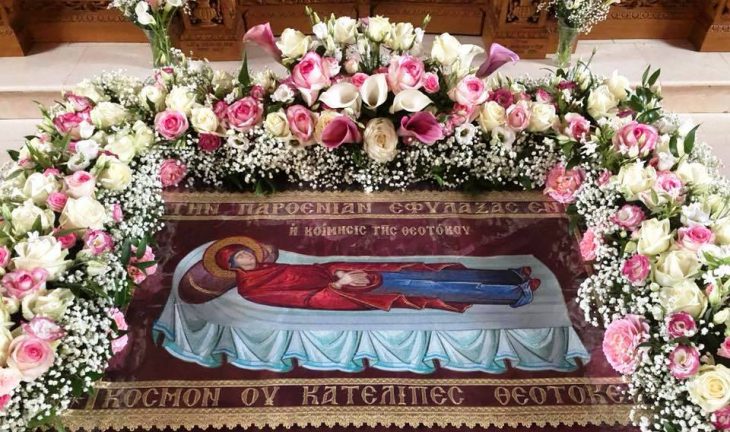
Cypriot and Greek Orthodox Christians celebrate the Feast of the Dormition of the Theotokos on August 15th or Dekapentavgoustos each year.
It is a national and religious holiday in Cyprus and Greece that marks the “falling asleep” repose or kimisis of the Virgin Mary, mother of the Lord Jesus Christ. The Feast also commemorates the Assumption of the body of the Theotokos into heaven.
Panagia was with the Holy Apostles on the day of Pentecost – a moveable feast that occurs 50 days after Pascha (Easter) and marks the descent of the Holy Spirit and the culmination of the Holy Trinity. All of the Apostles except Apostle Thomas were at Panagia’s bedside when she “fell asleep” and the Lord Jesus Christ came down and carried her soul to heaven.
The body of the Theotokos was laid in a tomb near the Garden of Gethsemane but the tomb was empty three days later when Apostle Thomas went to see her. The Assumption of the Theotokos (body) was later confirmed by an angel and an appearance she made in front of the Apostles.
The Orthodox Churches across the UK would have held a Great Vespers on the evening before the Feast, and on the day of the Feast, it is celebrated with the Divine Liturgy of Church Service in the morning.
31 years broadcasting the live Church Services on London Greek Radio.
One of the longest-running slots on LGR, every Sunday morning and at Easter.
There are three churches which are broadcast on a rotation, St. Andrew The Apostle, Kentish Town; St. John The Baptist, Wightman Road; and The Twelve Apostles, Hertfordshire, Brookmans Park.
Article written by London Greek Radio
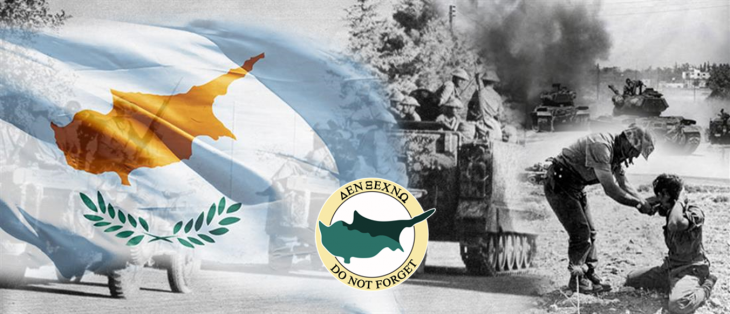
On July 20, 1974 at 5:30am, Turkish troops landed on the Republic of Cyprus’ coast five miles off Kyrenia. Since that day, nothing on the island has ever been the same.
Every year since, on the anniversary of the invasion, sirens have blared out over the Republic, recalling the moment Turkish troops invaded.
In 1974, approximately 40,000 Turkish troops under the command of Lieutenant Nurettin Ersin implemented their invasion plan, code-named ‘Attila’, illegally invading the island in violation of the UN Security Council Charter.
Turkey still illegally occupies 37 per cent of Cyprus’ territory.
Turkish troops invaded Cyprus on July 20, 1974, five days after the legal government of the late Archbishop Makarios III was toppled by a military coup, engineered by the military junta then ruling Greece. Two unproductive conferences in Geneva followed; the first between Britain, Greece and Turkey and the second with the additional attendance of Greek Cypriot and Turkish Cypriot representatives. Three weeks after the ceasefire of July 22, and despite the fact that talks were still being held and just as an agreement seemed about to be reached, the Turkish army mounted a second full-scale offensive. As a result, Turkey increased its hold to include the booming tourist resort of Famagusta in the east and the rich citrus-growing area of Morphou in the west.
All in all, almost 37% of the territory of the Republic of Cyprus came under Turkish military occupation. Nearly one-third of the population, some 200,000 Greek Cypriots, were forcibly uprooted from their homes and properties, thousands were killed during the hostilities, over 1,000 persons were listed as missing while thousands of Greek Cypriots and Maronites remained enclaved.
Numerous UN resolutions have demanded respect to the independence, unity and territorial integrity of Cyprus, the return of the displaced to their homes, and the withdrawal of foreign troops from the island, but all resolutions have been ignored by Turkey.
The National Federation of Cypriots in the UK last week, July 14th rallied a virtual All-Party Parliamentary Group ‘Cyprus@60: Opportunities, Challenges, Prospects for Reunification’. The Cypriot Foreign Minister Nikos Christodoulides briefed the APPG and members of the UK Cypriot community with the latest developments on the Cyprus issue, as well as other developments in the Eastern Mediterranean region.
He explained that Cyprus has always had a positive agenda and has never sought a “negative” foreign policy. He also noted that Cyprus strives to cooperate with its neighbouring countries on common principles and forge close partnerships across a wide range of fields.
He assured the Parliamentarians that Cyprus remains “strongly committed” to efforts to reunify the island and its people and that it remains ready to resume negotiations from where they have stopped.
The Federation President, Christos Karaolis, emphasised the tragedy of the fact that the Republic of Cyprus has “only been free and united for less than a quarter of its entire existence”. Mr Karaolis said, “what we want is simple, fair and rooted in international law – a free, re-united Cyprus that is based on the relevant United Nations Security Council Resolutions and High-Level Agreements.”
Karaolis also spoke of the close relationship that Britain and Cyprus share and said that “in a world where it [the UK] is not a member of the European Union, it can safely look towards the Republic of Cyprus as a reliable and predictable partner.” He concluded by paying tribute to all Presidents of the Republic of Cyprus since 1960 for “their immense contribution to Cyprus’ growing national story.” He also expressed gratitude towards all the British parliamentarians who have opposed the occupation of Cyprus and stood beside Cyprus during its first 60 years of independence.
Listen to the full broadcast on LGR this Monday evening from 7pm.
46 years on from the most tragic page in the Republic of Cyprus’ history, at 5:30am the war sirens rang around the island once more.
Article written by London Greek Radio
